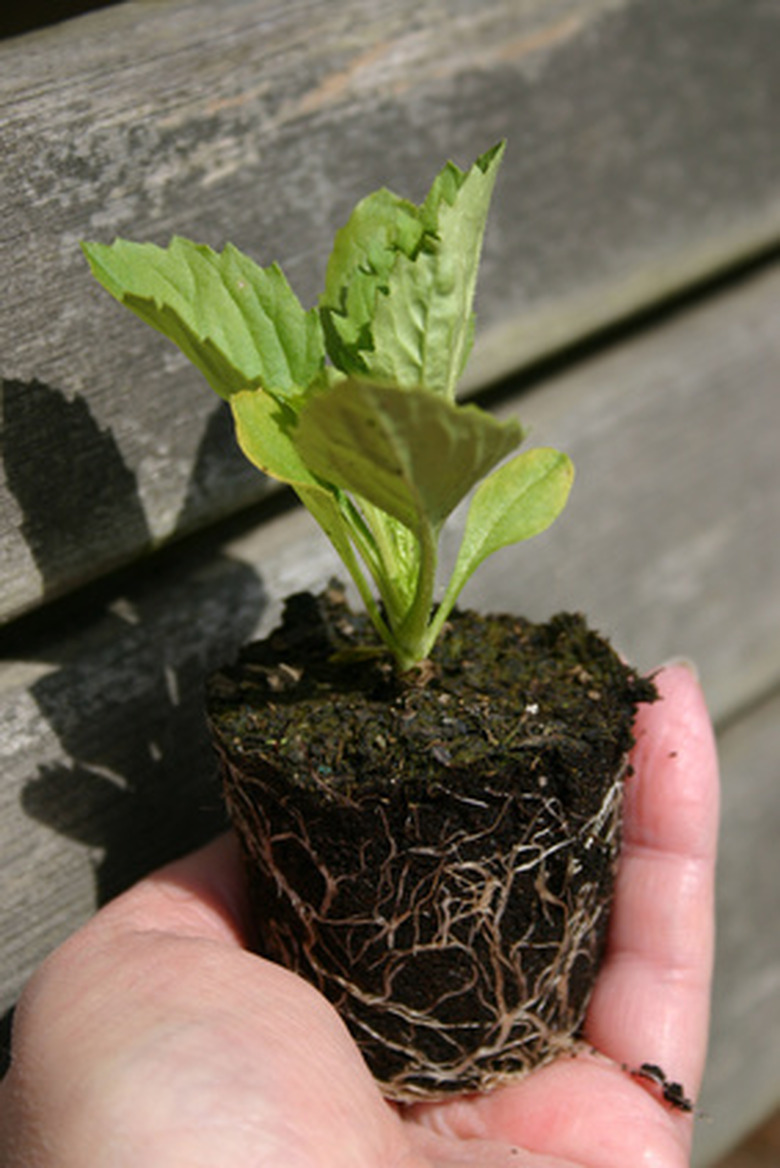What Minerals Does A Plant Need To Grow?
Plants draw nutrients from the soil just as humans metabolize nutrients from food. Lack of the proper nutrients can lead to leaf discoloration, failure to produce flowers and fruits, poor growth and great susceptibility to disease. You can test your soil with a soil test kit to determine the levels of nutrients, and add supplements and compost to increase the minerals in soil.
Nitrogen
Nitrogen is one of the most important minerals for plant growth. Plants convert nitrogen in the soil to chlorophyll, then use chlorophyll in a process called photosynthesis to convert sunlight into nutrients. As nitrogen leaches out of the soil rapidly, it should be added regularly through nitrogen-rich fertlizers, composted manure or green crops (such as rye or peas that fix nitrogen in their roots).
Phosphorus
Phosphorus is important to plants during periods of rapid growth, as it helps plants metabolize energy. Most annuals use a lot of phosphorus. Phosphorus is added to the soil in the form of rock phosphate, which is mined in the United States and other countries.
- Plants draw nutrients from the soil just as humans metabolize nutrients from food.
- As nitrogen leaches out of the soil rapidly, it should be added regularly through nitrogen-rich fertlizers, composted manure or green crops (such as rye or peas that fix nitrogen in their roots).
Potassium
Many commercial fertilizers specify percentages of N, P and K. These letters stand for nitrogen, phosphorus and potassium, the three most important minerals for plant growth. Potassium helps plants process water and other nutrients. While soils may contain a lot of potassium, it isn't always in a form that's readily available to plants. Adding potassium to the soil will help plants grow better and stay healthier.
Calcium
While nitrogen, phosphorus and potassium are considered the primary nutrients plants need, calcium, magnesium and sulfer are classified as secondary nutrients. Plants need these minerals to thrive, but in lesser quantities than the primary nutrients. Just as calcium is a component of human bone, calcium is part of the structure of cell walls in plants. A lack of sufficient calcium can cause blossom end rot in tomatoes and peppers, blackheart in celery, under-development of the leaves of corn and black tips on cabbage. Adding lime to soil increases the levels of calcium.
- Many commercial fertilizers specify percentages of N, P and K. These letters stand for nitrogen, phosphorus and potassium, the three most important minerals for plant growth.
Magnesium
Magnesium is important for the manufacture of chlorophyll. A lack of sufficient magnesium can lead to yellowing leaves on plants. Magnesium works with calcium and sulfur to achieve a nutrient balance in the soil. Too much of any one of these three can lead to insufficient levels of the other two. Adding lime will also increase levels of magnesium.
Sulfur
A lack of sulfur can also cause yellowed leaves on plants. Sulfur is a necessary component of chlorophyll. Sulfur also contributes to healthy root growth. Powdered rock sulfur can be added to soils to boost the sulfur levels if necessary.
- Magnesium is important for the manufacture of chlorophyll.
- Adding lime will also increase levels of magnesium.
